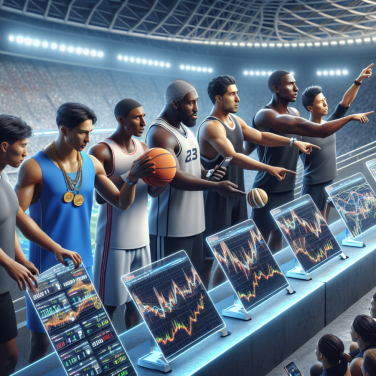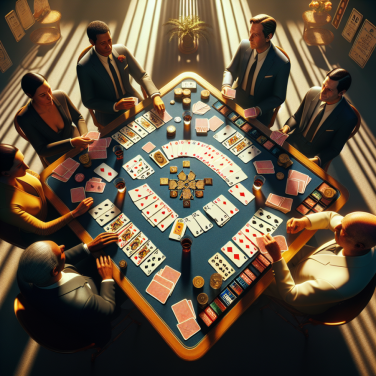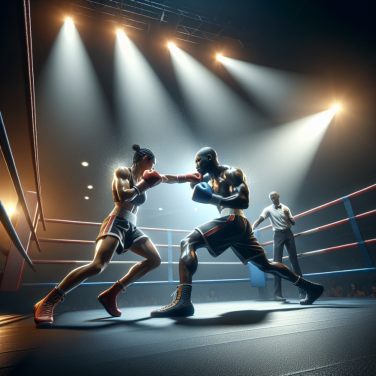Exploring the Layers of Intense Competition in Gaming
As the global gaming industry continues to grow, competition among gamers is intensifying. This competition is defined by complex layers. These layers span across various facets including individual skill, team dynamics, game knowledge, equipment efficiencies, and most importantly, the ability to adapt and strategize in an ever-changing environment.
The first layer that forms the foundation of intense gaming competition has to do with individual player skill. This involves physical abilities such as reaction time and hand-eye coordination, as well as mental abilities such as decision-making and tactical thinking. Every game requires a different set of skills, and the level of competition depends largely on how well a player can master those skills.
The second layer involves team dynamics. Many competitive games are played in teams, where players have to coordinate their efforts with other team members. Effective communication, trust in teammates, and a shared understanding of team strategy are crucial for victory. When these elements are missing, even the most skilled players can falter.
The third layer encompasses game knowledge. The best players have an intimate understanding of the game’s mechanics, mastering the use of game items, character abilities, and game physics to gain an advantage. They exploit every resource and feature the game offers, from the positioning of objects on the map to the timing of power-ups.
Equipment efficiency is another layer contributing to the intense competition in gaming. High-end equipment does not guarantee victory, but it can give gamers a slight edge. Investing in good quality gaming gear such as high-resolution monitors, responsive keyboards, and precision mice can overcome technical limitations that may otherwise hinder a player’s performance.
Finally, the most complex layer of competition in gaming involves adaptation and strategizing. Every match is a dynamic environment that changes as players make decisions and take actions. Successful gamers are not only reactive but also proactive; they not only respond to changes but create changes to disrupt their opponents. They are flexible in their strategies and can adapt to different competitive scenarios.
To become a formidable competitor in gaming, one needs to navigate and master all these layers of competition. This needs dedication, time, and practice. The beauty of it is that it provides opportunities for continuous growth and mastery despite the intensity of the competition. As the landscape of gaming continues to evolve, the chase for superiority promises to become even more thrilling and engaging.
Read also:
Comparative Study: Which Golf Ball is Proven to Fly the Furthest?"
Strategies and Skills for Dominating the Global Gaming Arena
As the global gaming arena expands, the playing field becomes more complex, competitive and dynamic. Gamers who aspire to progress to this arena must not only possess top-tier game skills but also strategize and adopt innovative techniques to dominate their opponents. Here are some strategies and skills that every competitive gamer can use to get ahead in the growing arena of global games.
Understanding the Game Mechanics
One of the most fundamental skills to develop is a comprehensive understanding of the game's mechanics. This includes knowing every detail about the characters, their strengths and weaknesses, understanding maps, and being familiar with every gaming technique. It also involves learning and understanding the rules, structures and purpose of the game. This deep understanding of game mechanics will allow you to make more informed decisions concerning strategy and game play.
Perfecting Game Mastery
Game mastery is more than just being a ‘good gamer’. It involves combined expertise in multiple areas such as tactical decision making, communication, and management. Building a diversified set of talent will allow you to adapt to different situations, making you a more formidable opponent. Practice is essential in this aspect, and it’s never too late or too early to start honing your skills.
Effective Communication and Teamwork
In team-based games, cooperation and communication are ironclad requisites for success. Just like any sport, games demand players to work collectively, strategize, delegate tasks, and delegate roles effectively. Effective communication allows the team to coordinate better, leading to improved coherence during game play. Moreover, the strength of a team lies in combined skills and individual player expertise.
Developing Emotional Resilience
Gaming, particularly on a competitive level, can often result in high-pressure situations. Developing emotional resilience can help you maintain your focus and composure during these intense moments. Acknowledge that losses are part of the journey and use them as opportunities for reflection and growth. Gaming is as much a mental challenge as it is a test of skill.
Continuous Learning and Adaptability
The world of competitive gaming is continuously evolving. New strategies, techniques, game updates, and player tactics emerge from thousands of games played across the globe every day. Hence, maintaining an adaptable mindset and a commitment to continuous learning is vital. It's important to keep abreast of the latest trends, follow gaming communities, and mimic successful players to stay at the cutting edge of competitive gaming.
In-depth Analysis of Competitors
Study your competitors as much as your game.




